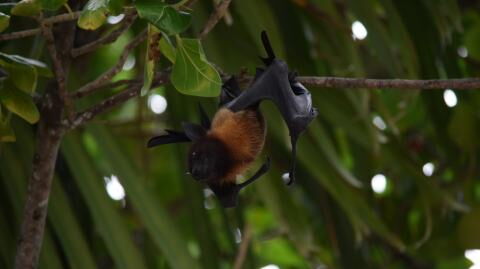Almost half of the population of white-tailed deer surveyed across four states in the US have been found to possess COVID-19 antibodies.
Discover our latest podcast
A new study by the US Department of Agriculture revealed that 40 percent of the deer sampled between January and March had been exposed to the virus although none of them had been clinically ill from the virus.
Deer are now the second species, after mink, found to have contracted the coronavirus in the wild.

Previous studies found that dogs and cats have contracted the virus in household settings, and other species have experienced outbreaks in zoos.
Unsurprising find
The findings of this research did not come as a surprise to the team since the white-tailed deer (which are abundant in the US) are known to be susceptible to the virus and would often come into close contact with people.
The scientists stated in the yet-to-be peer-reviewed paper that:
We targeted white- tailed deer (Odocoileus virginianus) for serosurveillance based on evidence these deer have ACE2 receptors with high affinity for SARS-CoV-2, are permissive to infection, exhibit sustained viral shedding, can transmit to conspecifics, and can be abundant near urban centers.
What does it mean?
The researchers believe the virus may have jumped from humans to the deer via activities such as field research, conservation work, wildlife tourism, wildlife rehabilitation, supplemental feeding, or hunting.
The researchers have not ruled out water sources as potential transmission routes although the research around this is yet to be conclusively demonstrated.
Currently, there is no evidence that humans are at risk of catching COVID-19 from the animals. But these findings indicate deer and other wildlife might act as a reservoir for the virus, potentially letting it circulate and evolve, even if it is controlled in the human population.
The researchers concluded:
Transmission from fomites or other infected animal species cannot be discounted.















